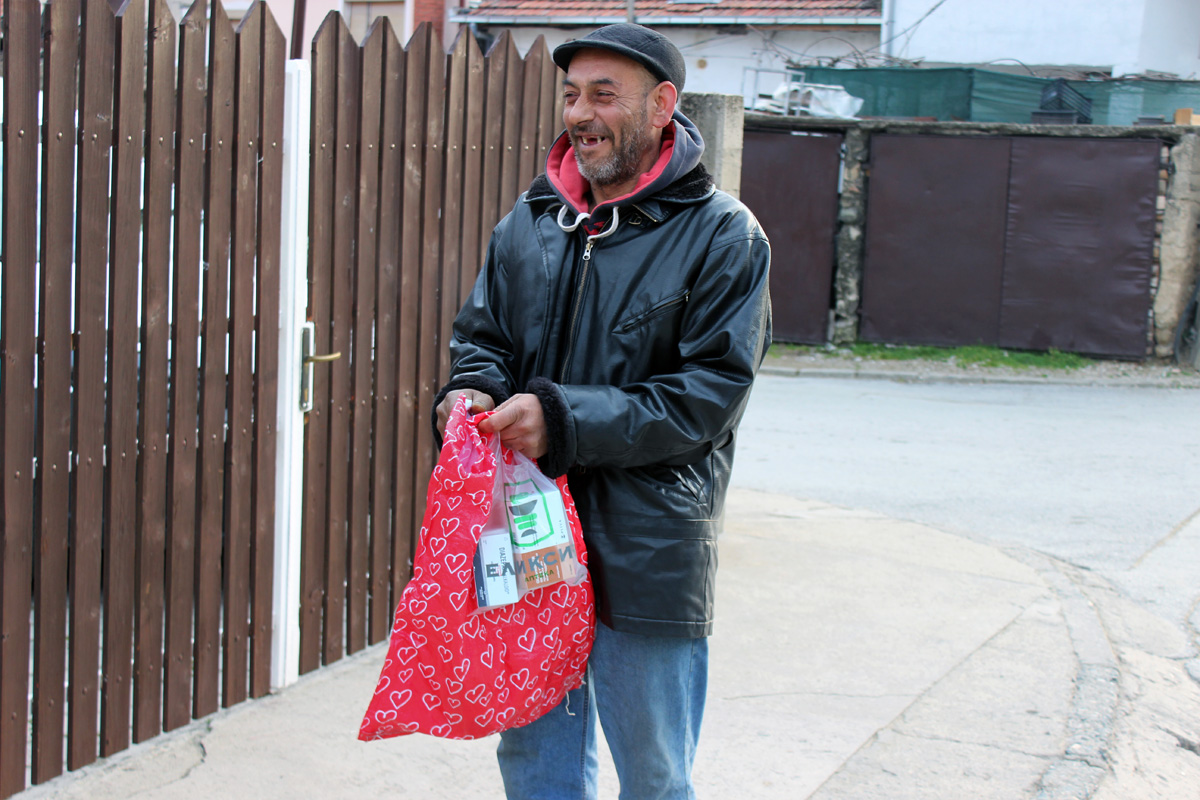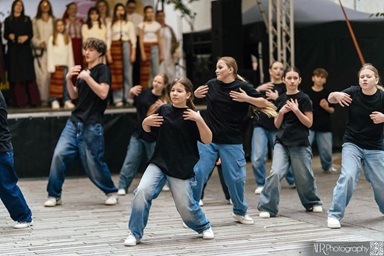Though COVID-19 changed the lives of many, leaders of the Miss Stone Center, a United Methodist diaconal facility, have been able to care for more than 200 persons without interruption.
The country's mortality rate increased massively – partly because the pandemic overwhelmed the health care system, said Christina Cekov, a member of The United Methodist Church working in North Macedonia. More people than usual died from other diseases because there was simply no room for them in hospitals and they could not be treated properly.
The second half of 2020 also saw an increased death rate among the beneficiaries of the Meals on Wheels program. Despite the constantly growing waiting list of those needing help, there are still 170 people in Strumica and 50 in Radoviš who receive a full meal every day.
Cekov said the pandemic changed how food distribution was handled in Radoviš. In the past, the beneficiaries received their food in the rented premises, where they also had the opportunity to warm up and interact with others while drinking a cup of coffee or tea. Now they have to come individually and at pre-arranged times and receive the packaged meal at the door, she explained.
In addition, during the winter period, people are offered warm clothes.
To donate
The Miss Stone Center in North Macedonia receives support through The Advance of the United Methodist Church.
Cekov gave one example of Mile S., a man from a village near Radoviš. After the death of his parents, his siblings had sold their parents' house and left him on the street. The new owners of the house took pity on him and gave him a room. A few years later, however, his wife and their child left him because she had had enough of the miserable living conditions. As a result, Mile fell into a severe depression and his mental health deteriorated rapidly. Today, Mile S. walks the nine kilometers to Radoviš every day to get food or clothing.
The Home Care Ministry is the service most affected by the COVID-19 situation because the service is extended to elderly, needy, sick and bedridden people who have personal hygiene, medical or nursing concerns and need assistance with household activities, the purchasing of groceries and other tasks, said Cekov.
She noted that this help is invaluable for the beneficiaries, as they often have no relatives or friends to help them or their family members live far away – often abroad.
The work of the Miss Stone Center also includes the Roma School in Ohrid. After classes had to be suspended for three months due to the coronavirus lockdown, the summer school for Roma children was able to run June 1-Aug. 31.
Despite great organizational challenges due to hygiene regulations, the people in charge of this summer school wanted to enable the children to catch up on the learning content they had lost during spring. Unfortunately, due to a lack of space, very few additional children could be accepted, although the demand was very high, Cekov said.
A total of 22 children participated in four age groups. They had a lot to catch up on and learn, but they also had activities for fun, including a day trip. On Sept. 1, a new school year began. New first-graders were admitted, and a boy who had progressed in his studies could be sent off to a higher school with great joy.
The counseling center for Roma girls, also located in Ohrid, had to remain closed for half a year because it was not possible to divide the girls into small groups and hold public lectures. There were also no professionals who would have been willing to get involved.
However, on Sept. 1, the counseling center was reopened, despite all reservations. For the girls, who usually live in miserable conditions at home, this ministry is of the utmost importance. Through its work, they experience unconditional acceptance as well as concrete help in life, and new perspectives are opened up to them.
The COVID-19 pandemic will shape the year 2021 as well, said Cekov. The fact that the Miss Stone Center wants to continue to be a place of reliability in the midst of uncertainty is a reason to hope for many people, she added.
Schweizer is assistant to Bishop Patrick Streiff, Central and Southern Europe Central Conference. Contact UM News at 615-742-5470 or newsdesk@umcom.org. To read more United Methodist news, subscribe to the free daily or weekly digests.
Like what you're reading? Support the ministry of UM News! Your support ensures the latest denominational news, dynamic stories and informative articles will continue to connect our global community. Make a tax-deductible donation at ResourceUMC.org/GiveUMCom.




